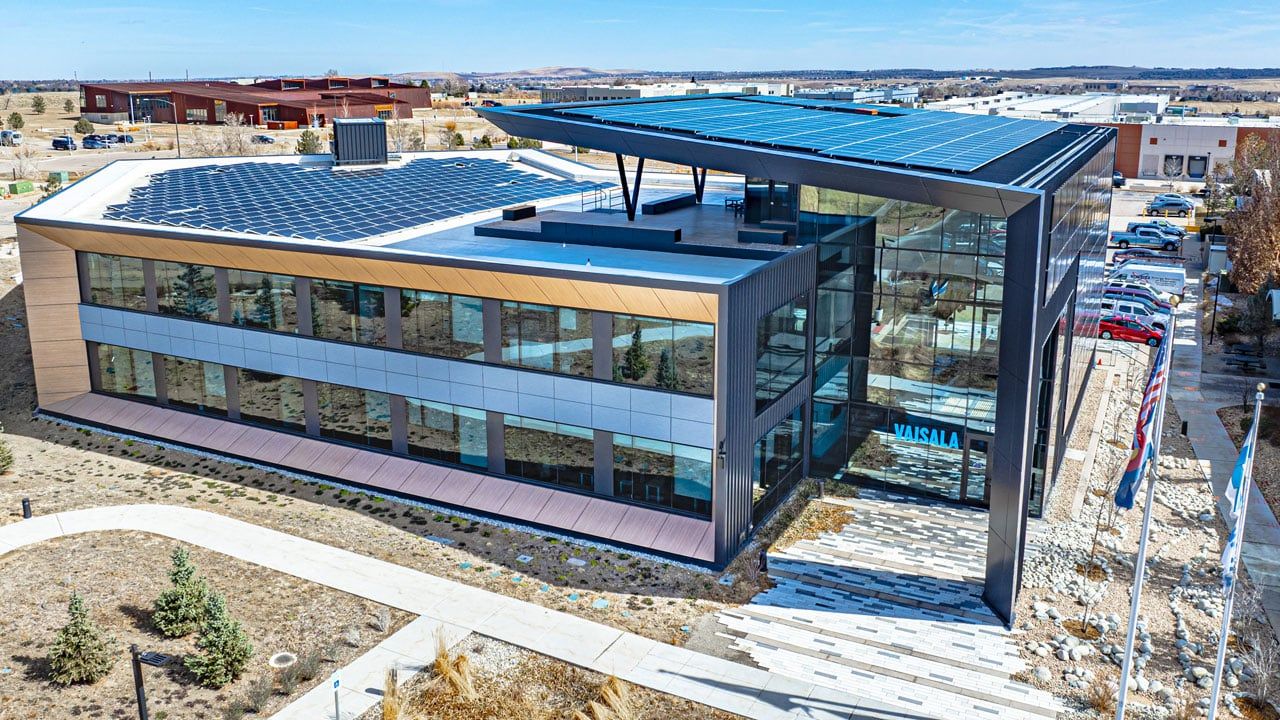Banks finding ways to make up for lost fees
New federal regulations in the Durbin Amendment of the Dodd-Frank Wall Street Reform and Consumer Protection Act in 2010 capped the amount of debit card interchange fees paid by merchants. Separate Federal Reserve regulations in 2010 curbed checking overdraft fees.
Regionally, some bankers look to wealth-management programs and foreign exchange as places to make up the lost revenue. Others say their strategies are to build revenue through growth while they try to keep fees down.
SPONSORED CONTENT
Commercial Solar is a big investment, but not an overwhelming one
Solar offers a significant economic benefit for commercial property owners while also positively impacting the environment and offering a path to compliance for new municipal requirements like Energize Denver. A local, experienced solar installer will help you navigate the complexities of commercial solar to achieve financial success for your project.
Vectra Bank is one looking to make up lost fee income through wealth-management services and foreign exchange, among other things, according to Kirk Monroe, Denver-based executive vice president and manager of the wholesale banking group for Vectra Bank Colorado. Mortgage loans are another source of income, Monroe said. Vectra Bank has three local branches.
BBVA Compass is on the same track as Vectra — looking to “carve out a little bit” of income in U.S. Treasury management products and services as well as wealth-management services and foreign exchange, said Cedric Buchanon, Denver city president for the bank. BBVA Compass has seven local branches.
FirstBank of Colorado takes a slightly different approach — working to keep fees down as much as possible to stay competitive and grow in the marketplace, said Brian Larson, market president for the bank’s Boulder branches. Lakewood-based FirstBank Holding Co. has 10 branches in Boulder and Broomfield counties.
“Our thought is that this helps us build the banks and help compensate for the lost fees that we’re seeing from new regulations,” Larson said. “We continue to grow the banks and build revenue through that method.”
FirstBank continues to offer free checking for consumers, Larson said. The bank has seen local growth in mortgage lending programs in the past several months as well, Larson has said.
Financial savvy
You can have fun and possibly win a prize while brushing up on your financial Ps and Qs by playing a new smartphone scavenger hunt.
The mobile device game is being sponsored by the Federal Reserve Bank of Chicago. To get the rules to “Money Smart Hunt” and download the app go to www.moneysmartweek.org/hunt.
As you play the game, you take pictures of tasks that show you are financially savvy. For example, you might attend a financial seminar and have another attendee take your picture there.
Winners of the national game can receive Apple and Visa gift cards. The scavenger hunt started at the beginning of April as a promotion for Money Smart Week April 20-27.
Local events include a special story time for children at the Carbon Valley Regional Library, 7 Park Ave., Firestone. To find out more about all Colorado events that week, go to www.moneysmartweek.org.
Another app
Bank of the West also is going more mobile with a new app called “Quick Balance.”
You don’t even have to log into your account to check your balance with the new app, according to a press statement from the San Francisco-based bank. In addition, you can deposit checks by taking a picture with your phone of a physical check, pay bills on your phone and transfer funds between accounts.
Bank of the West has two branches in Boulder and Broomfield counties and $86 million in local deposits.
Small-business lending
Small-business lending in Colorado is up by more than $214.8 million from a “baseline” year running from mid-2009 to mid-2010, according to a new report from the U.S. Department of the Treasury.
What that means is that regional small businesses have access to capital as the economy rebounds, according to the report.
“This quarter’s report shows that participants of the Small Business Lending Fund are continuing to help thousands of small businesses invest, hire and expand in their local communities,” Neil Wolin, deputy treasury secretary, said in a press release.
In all, lending has increased to Small Business Lending Fund banks by about $8.9 billion since 2009 in Colorado, according to the report. Those community banks lent money to small businesses, creating an estimated 38,000 new small-business loans over that time period.
The investment comes in the wake of the Small Business Jobs Act that President Obama signed into law in 2010.
Across the nation, the U.S. Treasury invested more than $4 billion into 332 community banks as part of the Small Business Lending Fund. Those banks operate more than 3,000 branches across the country.
Beth Potter can be reached at 303-630-1944 or bpotter@bcbr.com.
New federal regulations in the Durbin Amendment of the Dodd-Frank Wall Street Reform and Consumer Protection Act in 2010 capped the amount of debit card interchange fees paid by merchants. Separate Federal Reserve regulations in 2010 curbed checking overdraft fees.
Regionally, some bankers look to wealth-management programs and foreign exchange as places to make up the lost revenue. Others say their strategies are to build revenue through growth while they try to keep fees down.
Vectra Bank is one looking to make up lost fee…
THIS ARTICLE IS FOR SUBSCRIBERS ONLY
Continue reading for less than $3 per week!
Get a month of award-winning local business news, trends and insights
Access award-winning content today!

